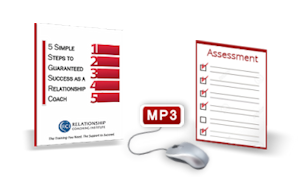 “You don’t need to be an expert to coach, you just need to apply your coaching skills expertly.”
“You don’t need to be an expert to coach, you just need to apply your coaching skills expertly.”
– David Steele
The skills of professional coaching are universal and enable you to coach anybody about anything. But while you can coach “anybody,” you can’t coach “everybody.”
Confused?
Here’s three requirements for who you can coach effectively:
1. The client must believe you can help them.
While you must have professional training, credentials and credibility (experience, track record, personal and professional accomplishments, etc), if your client is skeptical about your ability to help them your odds of success are low. You can address this with a potential or new client by helping them have a positive attitude and believing in themselves, but this is not a good start of a productive coaching relationship. Some folks are attached to being the “victim” or other reason for holding back from achieving what they say they want and you are unlikely to change that.
2. The client must engage in the coaching process.
A client who insists on you providing advice and your “professional opinion” and resists exploring their inner truth and accessing their inner wisdom wants a consultant, not a coach. A client who argues or disagrees with you about how you’re helping them is unable/unwilling to benefit from your help and it’s not a good idea to attempt to convince them otherwise.
3. You must be able to inspire your clients to stretch beyond their comfort level.
Human nature prefers safety, comfort, security, and routine. Success in anything significant requires leaving your comfort zone to take risks and stretch to do things that scare you that you haven’t done before. It is normal for a client to resist stretching, but a supportable, coachable client is willing to do so (perhaps in “baby steps”) for YOU. That’s right, they are not doing so because they WANT to, even though they know they need to do so to be successful, they are doing so in response to YOU. They allow you to inspire and motivate them when they are scared, insecure, and self doubting. They have chosen to figuratively hold your hand and borrow some courage and energy for forward movement from you. Be sure your coaching presence is strongly positive, confident, aspirational and inspirational as your clients need that from you.
While in theory you can coach anyone about anything, at a minimum your clients must believe you can help them, engage in the coaching process with you, and allow you to inspire them to stretch beyond their comfort level. The most experienced, skilled coach in the world is helpless if one of these are missing.
The bottom line: To be a successful coach, pay attention and address these three requirements if any are missing or deficit, for your client’s benefit as well as yours.

